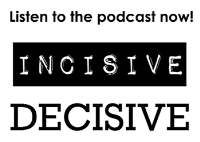.png?width=1627&height=517&name=Full%20TCA%20Logo%20(Purple).png)
I’m finding it hard to not return to Matthew Walker’s book ‘Why we sleep’ again and again because the information contained within it is so compelling and so convincing that it has occupied quite a lot of headspace over the last few weeks.
Learning from that book has tied in (by pure chance) with my fascination of sleep and stress recording using a Garmin 935 watch.
I wrote about this a while ago, but when I first got the watch in January (a chance free gift from someone else) I started to become quite interested in how it would measure my stress levels on a day-to-day basis but also my sleep time.
After a while Garmin updated the watch and it now gives you a summary, every day, of light, deep and REM sleep and awake time.
While I fully appreciate that this is not as accurate or as detailed as being in Matthew Walker’s sleep lab with electrodes on your head, it must be a lot better than nothing, even as basic monitoring and you can cross reference it against how you feel and what you think is going on and see whether the numbers stack up.
What’s now made it more interesting through the book is the clinically proven (with a huge bank of evidence) effect of lack of sleep on mental and physical (and most astonishingly) physical health.
I could always have easily bought into the fact that lack of sleep is bad for your mental health, despite the fact that I still manage to convince myself that it was ok to limit the sleep I was having, but the devastating evidence about the significant effect of sleep deprivation and even only mild sleep deprivation on physical health is quite astonishing.
As Walker rightly points out in his book, when he stands up in front of an audience and tries to convince them of this, he has to be very careful not to bombard them too much with the research numbers or else they will lose the will to live (but he does do the research numbers extensively in the book) what he has developed are some hard hitting and punchy stories which get the point across in such a beautiful way and the most devastating of these (I think) is below.
Less than six hours of sleep for only one night has a short-term impact on cardiac health, as well as many other aspects of health.
Less than six hours sleep over an extended period of time can have a devastating impact.
To end up with a significant deficit to your cardiac health would be a multi-factorial problem but one in which sleep is a huge contributor.
So, the story he tells is this…
There is a huge, long term, epidemiological study into population sleep deprivation that happens once every year, in the spring in the Northern hemisphere. For one night the vast majority of a population is denied one hour sleep and therefore it is possible to scrutinise health records and statistics to see whether there is a health impact on even this one night of sleep deprivation.
This is, of course, daylight saving, ‘the clocks going forward’
Easy to guess, because I wouldn’t be writing this otherwise, that the number of heart attacks in the GB population significantly spikes the day after the clocks go forward.
On another public health note, the number of car accidents increases too.
This happens every year, from one night of enforced sleep deprivation due to daylight saving and it’s hard to refute these statistics because it’s a population wide study and there is no other mass population event which is contributing to the spike.
What then is the effect of long term enforced sleep deprivation due to ‘the expectations of society’?
The sting in the tail here is that heart attacks and road traffic accidents fall significantly the day after the clocks go back. This just adds another arm of proof to the argument. You know this is true, think about it and the way you feel when you get less than an ideal night’s sleep.
It’s also perhaps (but Walker doesn’t say this) one of the reasons why we feel so bad after we drink on a Saturday night. Alcohol massively affects quality and quantity of sleep achieved.
I have known this, instinctively, for long enough. I try to exercise and try my best to eat as well as I can (very unsuccessfully a lot of the time) to try and offset the risk to what I perceive is particularly my cardiac health, but the biggest hole in my bathtub and the one which was leaking the most water was sleep.
I would think this year has been one of the best years of sleep for me, probably because of the watch and even before I read the book, but as I look through the stats (the app is on my phone) it still could be a lot better.
The ideal would be to hit over eight hours average a week as this is what Walker says is the bed rock for health, but I’m still finding excuses for why that is difficult.
Over the past 15 years or so my alcohol intake has been insignificantly small (apart from one or two tiny blips) my weight has dropped by another two stone and a lot from my previous 18 stone high. I have a pretty good, regular exercise routine which allows me to do some cool stuff but also keeps my mind and my body in some sort of shape.
But sleep… this is the last frontier I guess. Get this bit right and a lot of the other pieces fall into place.
Blog Post Number: 1833






Leave a comment